
Conflict & Diplomacy: The Azerbaijani Laundromat: Why It Matters
Naming and shaming the perpetrators could be the best way of tackling international high-level corruption akin to the current case. Form Emerging Europe.
More...We kindly inform you that, as long as the subject affiliation of our 300.000+ articles is in progress, you might get unsufficient or no results on your third level or second level search. In this case, please broaden your search criteria.

Naming and shaming the perpetrators could be the best way of tackling international high-level corruption akin to the current case. Form Emerging Europe.
More...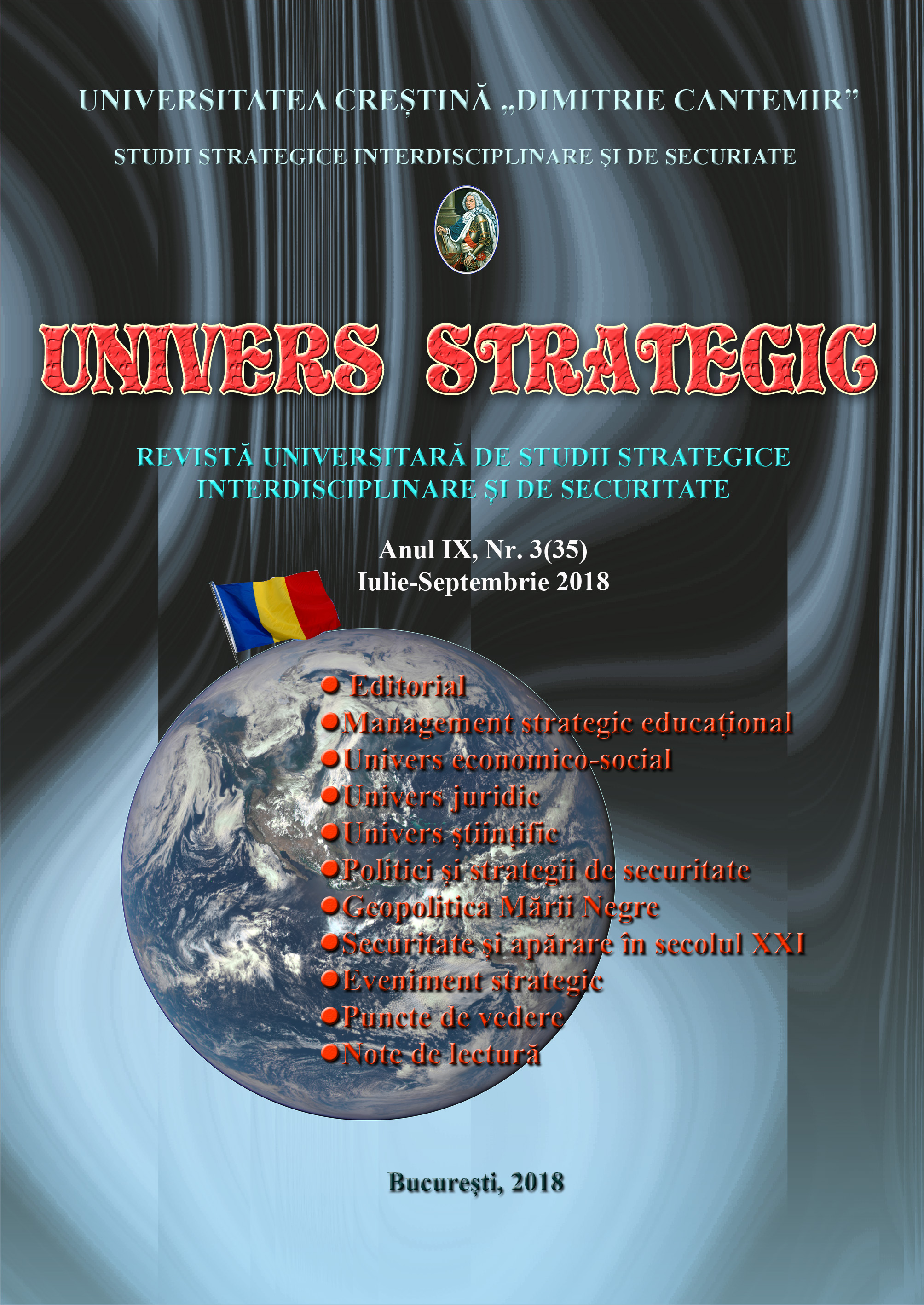
Over the last two years, over 2000 kg of gold and 40,000 kg of silver have been masked, contained in mining concentrates and metallurgical by-products. Order no. 10 / 28.01.1995 liberalizes these "exports".
More...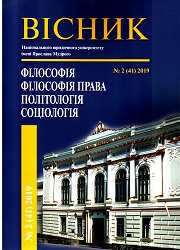
Problem setting. Assessments of perception and attitude towards corruption are the basis of most of the monitoring of anticorruption potential in the world as well as in Ukraine. They are most often the subject of scientific discourse. However, unresolved issues are related not so much to the measurement as to the factors that determine the peculiarities of the perception of corruption.Analysis of actual research. The problem of corruption was widely studied in the works of such prominent Western scholars as G. Broadman, G. Davos, D. Kaufman, P. Mauro, V. Miller, S. Rose-Exerman, V. Dances, E. Tebaldi, J. Helman, M. Horton et al. Among the Russian and Ukrainian researchers, corruption problems should be mentioned by L. Bagryi- Shakhmatov, O. Baranovsky, A. Bovu, Y. Kuzminov, M. Melnyk, T. Koshechkin and others like that. Issues of effective prevention and counteraction of corruption, implementation of anticorruption policy, cooperation between civil society and authorities in combating corruption were investigated by Ukrainian researchers such as V. Martynenko, A. Mikhnenko, E. Makarenko, S. Kravchenko, O. Sosnin, Yu. Kannish, E. Nevmerzhitsky and many others.The purpose of this article is the analysis the factors that determine the peculiarities of perceptions of corruption in Ukraine and thus explain the phenomenon of low anticorruption potential.Presenting the main material. Corruption counteraction requires definite and consistent ideas about the essence and forms of corrupt behavior. In other words, in the course of development and implementation of a national anticorruption policy, it is important to consider existing standards or stereotypes in the understanding of corruption. People rely on such standards in their assessments of various dimensions of corruption, which, sometimes, differ from a legislative vision of the essence and forms of corruption entirely. In the countries where the process of implementation of the international anticorruption conventions containing fundamental or model descriptions of elements of corruption crimes has not been completed, the picture is even more complicated. For instance, prior to June 2009 (the first attempt to pass “the anticorruption package”), only an insignificant number of administrative offences was classified as corruption under the Ukrainian law. At the same time, various types of actions were regarded as corruption both by the public and by politicians.From a legal standpoint, there is presumed knowledge of the law. In other words, for the purposes of law enforcement, it is presumed that every citizen is aware of the types of actions that are considered corruption crimes or administrative corruption offences in a given society. However, social reality considerably deviates from the regulatory model of the anticorruption laws. Besides, the problem in this case is much more complex than a mere knowledge of respective legal provisions.Conclusions. In the public opinion, corruption may take various forms; and a model described in an anticorruption law is not always acceptable for people. Moreover, there are types of actions that look like corruption but are not corruption from a legal perspective; conversely, circumstances that may not look corrupt at first sight are corruption under the law. It is very important to determine how respondents understand corruption and how they distinguish its various forms in specific everyday situations. From a sociocultural perspective, perceived assessments of corruption depend on the public conceptions of corruption.The problem has received essentially no attention in the studies conducted in Ukraine. To an extent, an explanation could be that there were no legal experts in the research groups carrying these surveys out and that the conceptions of sociologists in respect of corruption were, at best, incomplete or superficial, because they covered only most common forms of corrupt conduct, i.e. bribery and abuse of power. Legal subtleties associated with the definition of offenders, elements of crime, types of liability and correlation between moral and legal aspects etc. have been left without attention of the methodology designers.In this case, these findings could be used as «background information» in the interpretation of findings received in respect of the public perceptions of corruption and the extent of involvement in corrupt relations.
More...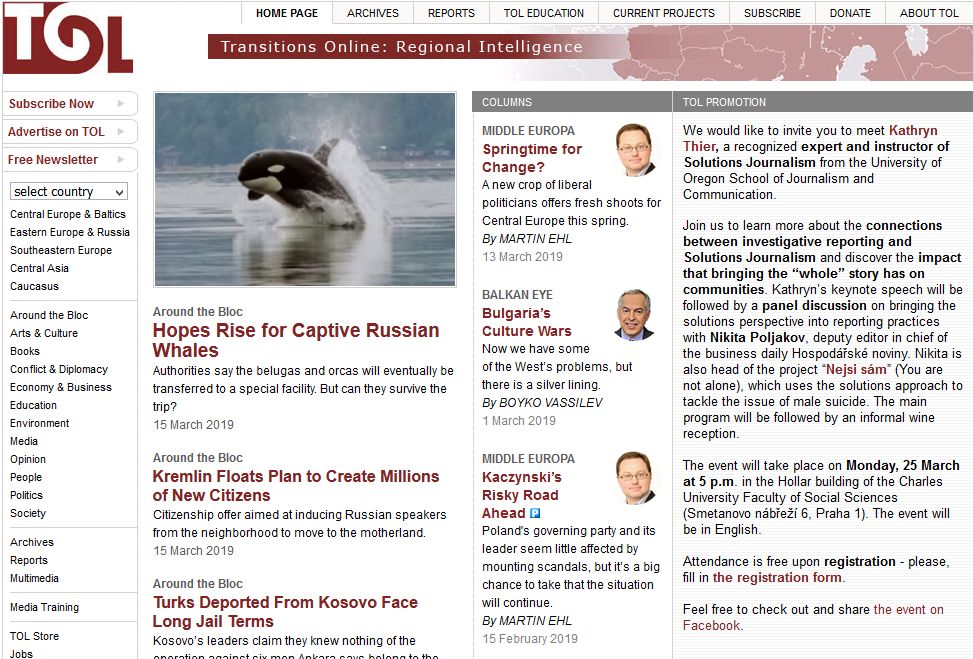
Interview with The Guardian comes days after daughter of late Uzbek president sent off to a prison colony for violating terms of her home imprisonment.
More...
The article states that by this time the issue of normative provision of anti-corruption activity was studied and analyzed by scientists on the basis of rapidly changing legislation, based on this it is proved that urgent and necessary is a detailed study.It is established that the adopted anti-corruption strategy for 2014-2017 provides for not only the comments made by international institutions, but also the provision of proposals on the state of corruption and its outspread. It is substantiated that the distinctive feature of the current strategy is the separation of the risk area in the anti-corruption policy of the state and the implementation of the proposals on the elimination of corruption elements in the process of state-building, as well as taking into account the shortcomings of the previous ones.Adoption of the Anticorruption Strategy allowed the creation of new anti-corruption bodies that exist in the European Union in accordance with the requirements and norms on the basis of which the fight against corruption is being conducted. At the same time, it is noted that the adoption of new or improvement of existing laws does not guarantee the effective conduct of such activities.
More...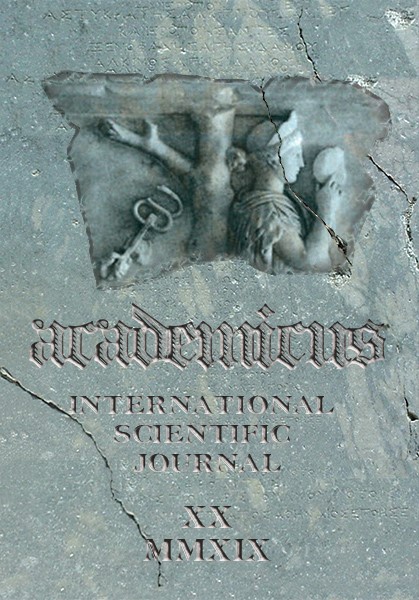
The attitude to corruption and the perception of it (as well as the acceptance or rejection of corruption) depends largely on the customs and traditions in a particular country, with the causes of corruption deriving from the political, economic, social conditions of a particular country and from the historical development, customs and culture. However, the demographic indicators must not be ignored. The existing researches thus show that the perception of corruption, at least to some extent, depends on gender (women are supposedly less corrupt and perceive corruption more; age and education). For the purpose of this article, the influence of demographic indicators (gender, age) on the perception of corruption in Slovenia was researched. The results were compared with the already known researches and it was determined that there are no statistically significant differences in the perception of corruption with regard to gender and age, which shows that Slovenia, in view of the specifics of the corruption perception (although the corruption perception is high in Slovenia), differs from other countries in which researches took place.
More...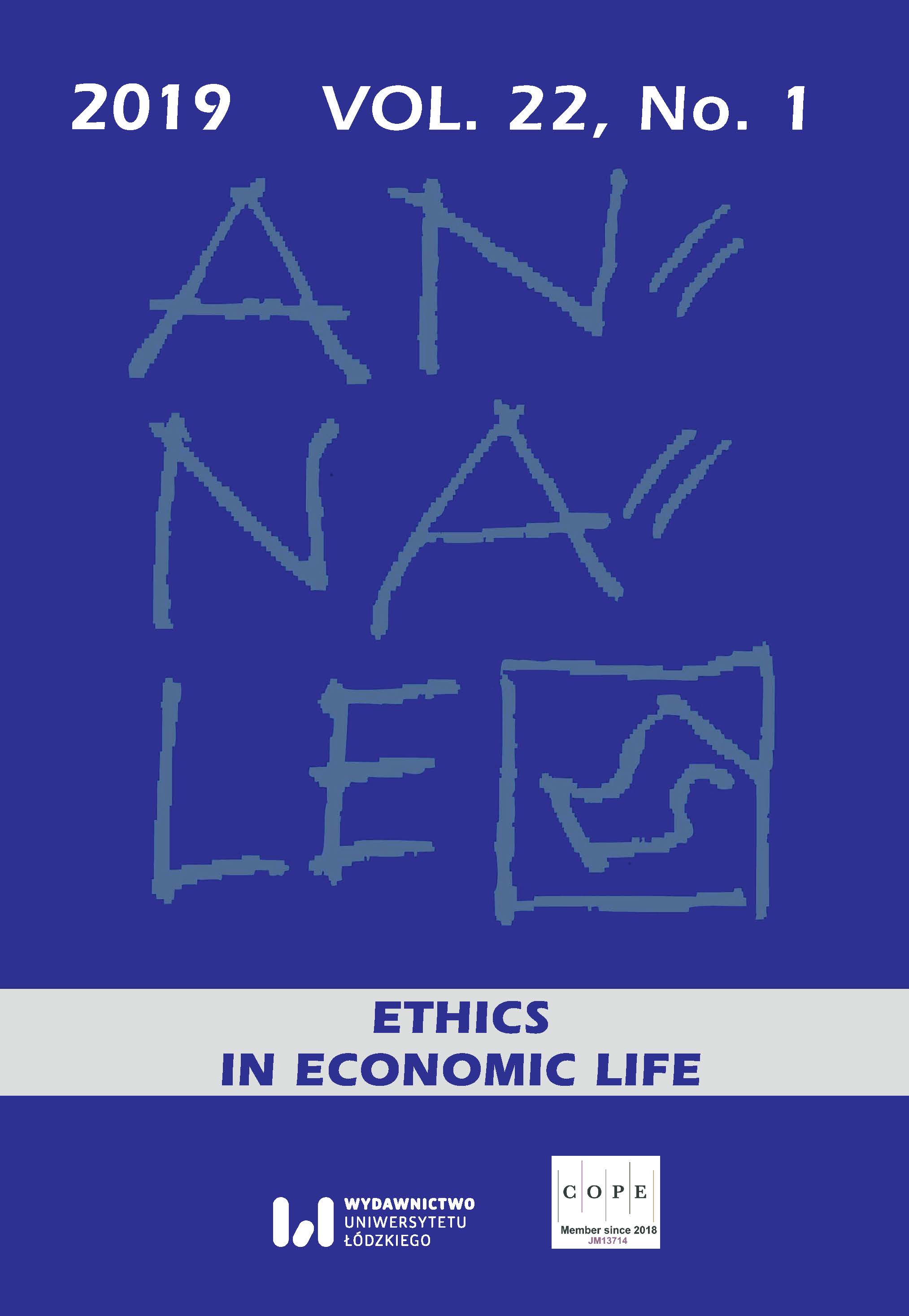
The aim of the article is to present multidimensional analyses and deliberations that bring us closer to better understanding the corrupt practices that commonly occur in everyday economic reality. Particular attention was paid to the economic and social aspects of the corrupt behaviors which are considered, taking into account the main goals of corruption and the accompanying results. At the beginning of the work, the essence and aims of corruption were characterized, and also the author’s own definition of this phenomenon was formulated in a broad sense, according to a pragmatic approach to the analyzed problem. The consequence of the adopted research approach is that corruption has been divided into two categories – crimes and legal corruption. An important element of the analysis is the perception of corruption as a network of influences, connections and dependencies which are a consequence of actions developed in practice and the behaviors of the people in charge of the authorities. Another topic was devoted to financial benefits, which should be interpreted as an economic dimension and a basic determinant for all forms of corruption. In this part of the study, specific processes and decisions for achieving measurable financial benefits by a selected group of beneficiaries were thoroughly discussed and explained. In order to strengthen the formulated theses, remarks and conclusions, the results from the audit carried out by the Supreme Audit Office were additionally used. The findings included in the report of the Supreme Audit Office also served as an important argument for the assessment of specific behaviors in terms of public officials bearing responsibility for activities that are a conscious act of using power for their own particular interests. In the further part of the article, the assumptions and objectives of the anticorruption policy of the government included in the program documents for years 2014–2019, as well as the new version of the anti-corruption strategy for years 2018–2020, were subjected to a critical analysis. Finally, the author presented selected information included in the annual Central Anti-corruption Agency report and a few reflections summing up the process of combating corruption in Poland.
More...
Czech protests have wound down for the summer, but organizers say the break -- far from being a chance for the movement to lose momentum -- will re-energize the protestors, leaving them fresh to take advantage of new ammunition expected in November.
More...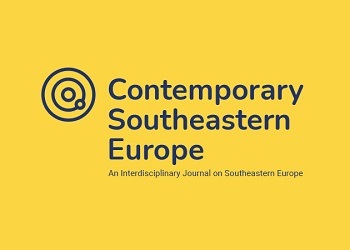
Since the end of the Cold War, the international community has engaged in a number of ambitious interventions in postwar countries with the aim of fundamentally reshaping state-society relations through building new state institutions, restructuring economies and supporting the development of civil society. The notion that international actors are able to build effective and legitimate state institutions in societies recovering from war has led to a proliferation of studies that have explored, both theoretically and empirically, the impact of international state-building. The general consensus in the literature is that the record is not a good one: the few success stories of international state-building have been overshadowed by a laundry list of failures. Explanations of these failures typically range from a mismatch of resources and mission objectives1 and the lack of strategic coherence among international state-builders2 to the deleterious effects of liberal interventions3 and so-called ‘liberal imperialism’.4
More...
Corruption in the form of a contract of bribe appears in very different forms (material or non-material rewards, given through some known legal forms or secretly, followed by visible or invisible favours by the bribed person, etc.), and it is frequently bordering with the allowed legal acts (e.g. mandate contract commission).The key elements of the notion of bribery in contracts are: 1. Giving certain valuable consideration in exchange for favouring the briber; 2. Secrecy of the act of giving a reward; 3. Counterprestation (influence) of the bribed in view of concluding a contract in favour of the briber. A contract of bribe is an immoral contract and, as such, it is void with all implied consequences. Nullity can be officially referred to by the court itself. Speaking about consequences of the nullity of a contract due to bribery, the rule of Nemo auditur turpitudinem suam allegans has an important role for the restitution of the reward given. The contract concluded between the briber and a third party, for which the bribed person had been given a reward (bribe), i.e. the so-called basic contract is not void. However, its validity can be questioned in certain circumstances. When the other contracting party finds out that the contract it concluded was achieved due to the bribing of its representative or employee, or a third party, it may refer to the Code of Obligations governing mistake or fraud. If the contract is rendered void due to those reasons, the return of the given reward is discussed in accordance with the law of unjust enrichment. Moreover, the party acting in good faith is entitled to damages.
More...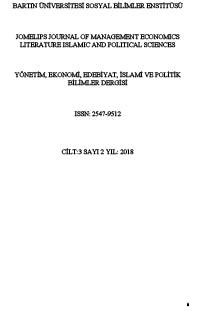
The increasing level of corruption is one of the most important problems facing transition economies in the process of adopting the free market economy. Studies that emphasize the level of democratization are among the factors that are effective in reducing corruption in recent years. Transition economies seeking to enter the European Union are taking important steps towards democratization. This study examines the change in corruption perception scores of Poland, Croatia, Czech Republic, Bulgaria, Romania, Hungary, Slovakia, Slovenia, before and after accession to the European Union. It is seen that the perception of corruption is relatively lower in transition countries where democratization is high. It is thought that other transition economies will increase their democratization efforts towards membership to the EU and change the perception of corruption.
More...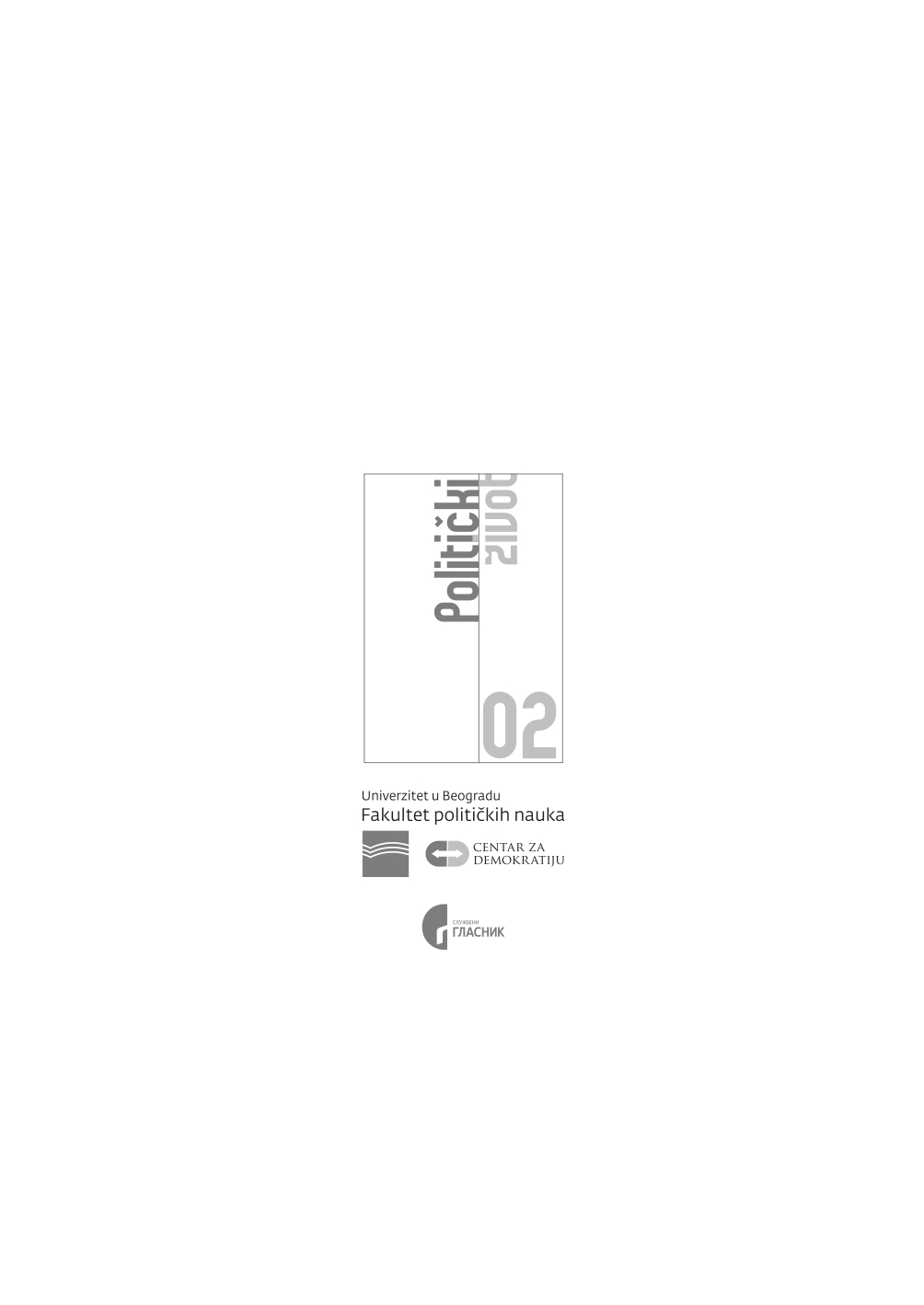
Korupcija u političkom, ekonomskom, socijalnom i vrednosnom sistemu. Korupcija u podsistemima. Prepoznavanje oblika korupcije. Istraživanja sistemske korupcije. Borba protiv sistemske korupcije. Sistemski antikorupcijski zakoni. Državni organi za borbu protiv sistemske korupcije.
More...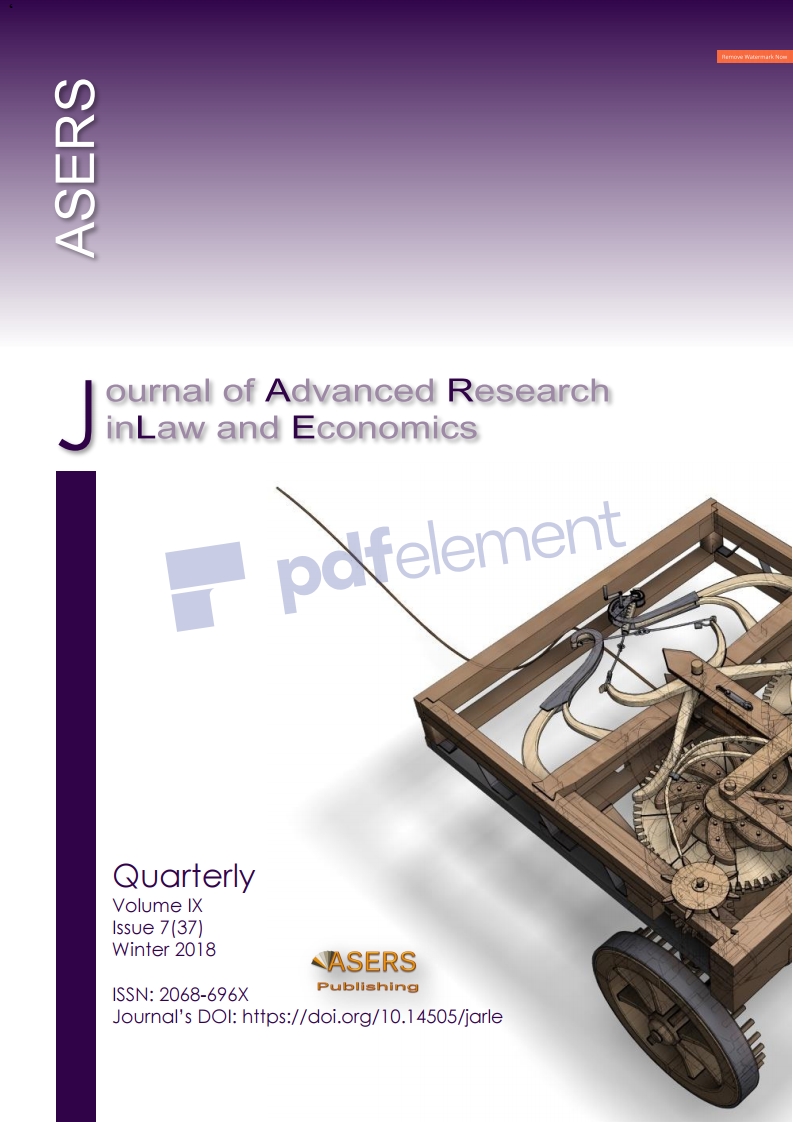
Analysis of the current situation in the fight against crime in Russia, in our opinion, shows that it is necessary to strengthen the role of the state in this process, and, consequently, improve the quality, efficiency, process of crime investigation, which includes not only the recognition of signs of offenses, collecting evidence, but also the ability to identify a system of factors and circumstances that contributed to the commission of a particular crime – with the aim of their subsequent elimination by methods other than the procedural, but otherwise legal. In this aspect, the authors, in the framework of this article, touch upon issues related to corruption offenses in the housing and utilities sector. The article considers the current state of affairs in the housing and utilities sector of Russia. It is argued that corruption in the housing and utilities sector is a kind of indicator of society that characterizes its socio-economic level and the viability of government. The corruption component in the activities of housing and public utilities in the formation of tariffs was considered. Offered options to combat this negative phenomenon.
More...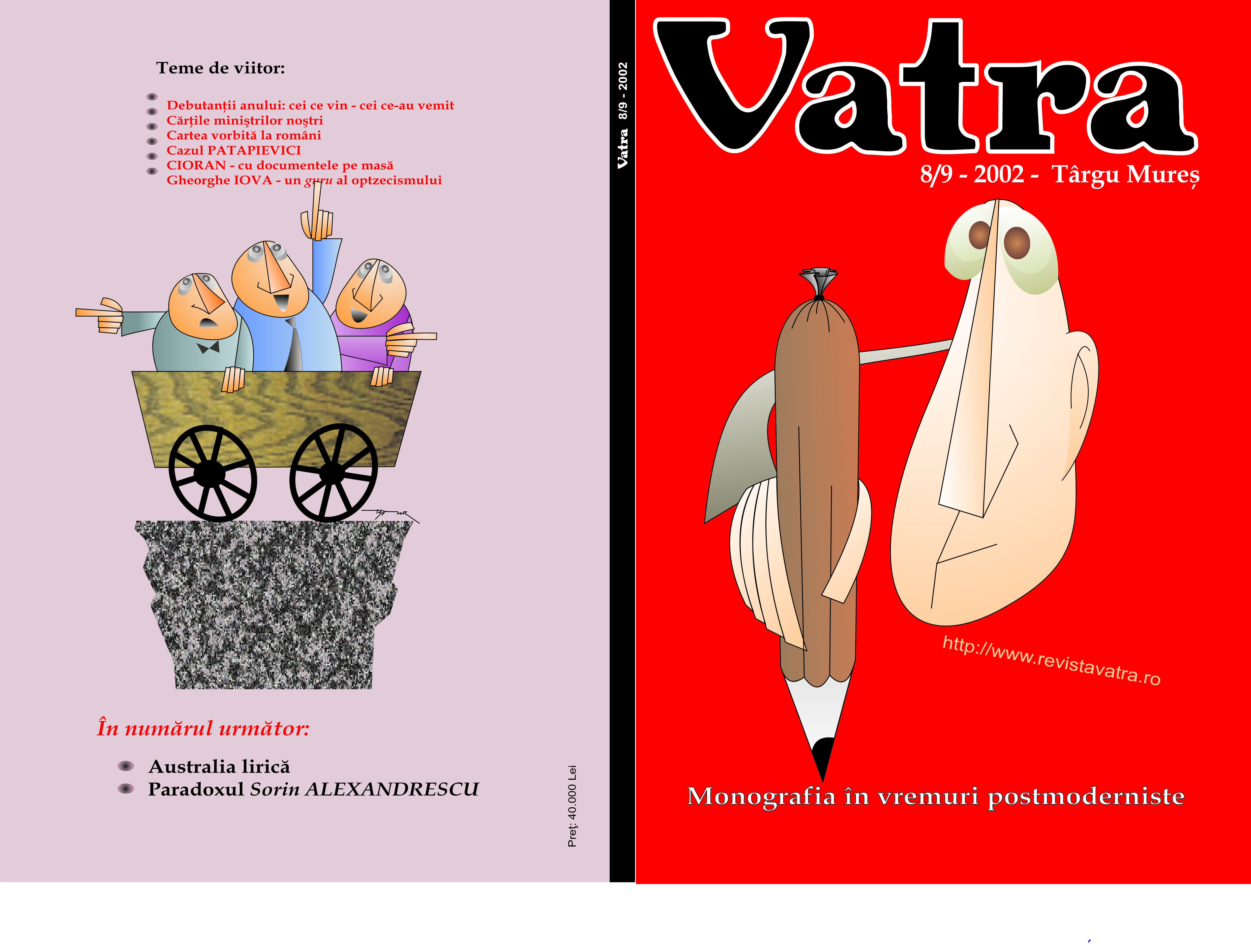
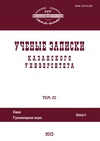
The paper analyzes the need to identify the general concept of bribery crime in the Russian Federation. The origin of this concept has been studied using the dialectical research methods, in particular the ascent from the abstract to the concrete in thinking. The problem of the general concept of bribery crime is relevant because of its theoretical and practical significance. It is necessary to carry out the separation from the total mass and further systematization in the unifying concept of the whole set of homogeneous features inherent in the acts of this group of crimes. The definition of this concept is intended to ensure the completeness and diversity of the perception of all elements and signs of specific elements of crimes related to bribery, to eliminate the existing legislative problems and gaps, as well as to form a basis for the impeccable qualification of this group of crimes in the current criminal legislation of the Russian Federation. The purpose of the research is to study and analyze of the elements and signs of crimes related to bribery in their relationship and interdependence. It lies in the argumentative-doctrinal basis for identification of the general concept of elements of crimes associated with bribery and corresponds to the attempt undertaken in this work to disclose and analyze the signs and elements of the general concept of elements of the designated illegal criminal act.
More...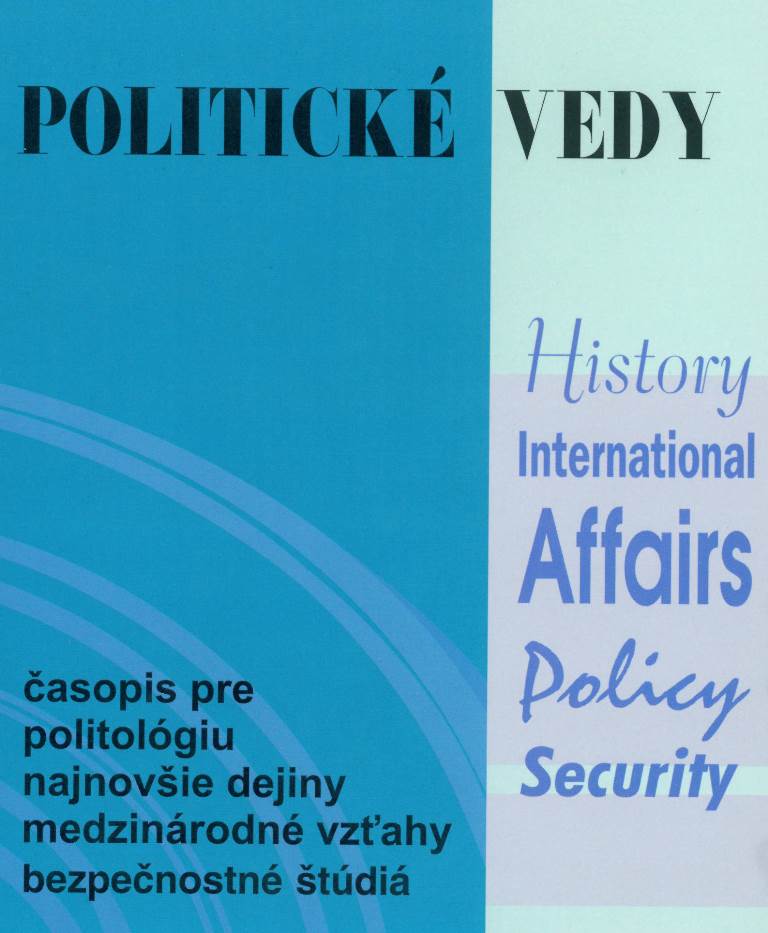
Within last few years we are witnessing the rise of populist politics which applies anti-establishment and anti-corrupt appeals. This phenomenon is widespread not only in the newer but also in advanced democracies. The present study identifies a theoretical framework for studying the politics of emotions in the context of the electoral success of populist parties. It pays detailed attention to anti-elitism, the affective political style, and anti-corruption rhetoric, researching them as dimensions of emotion-based populist mobilisation. In the empirical section, it analyses the results of an expert survey of political parties with respect to the Czech and Slovak political parties. By comparing the results for the years 2014 and 2017 on the dimensions of anti-elitism and anti-corruption rhetoric, the study demonstrates the growing salience of the politics of emotions, especially in the case of new protest parties. The evidence presented clearly documents the reliance of these protest parties and movements on the politics of emotions, suggesting that they can be classified as populist. Analysis of the salience of anti-elitist and anti-corruption rhetoric shows that the rise of anti-establishment parties cannot be explained merely by growing voter discontent with the economic situation and the quality of governance. Any such explanation must also embrace evidence about the politics of emotions that characterizes those parties. In the concluding section, the paper documents a clear trend of increasing electoral popularity of parties found by the expert survey to exhibit above-average levels of anti-elitist and anti-corruption rhetoric.
More...
The smartphone apps have revolutionized the markets of goods and services more than other recent technologies. Although they modified the market paradigm in sectors like accommodation, transport, or “gigs”, the changes in the way the economics systems function are still widely neglected by the literature. We intend to analyze some of these changes and their impact, which in economic history could only be compared with trade liberalization. The smartphone apps increase market transparency, reduce or eliminate the entrance barriers and expand the markets to unprecedented levels. Although we limit our observations to a few cases, the apps have the potential to revolutionize any given market. For the first time since the economy has become a recognized science, market transparency is more than a utopian goal. The apps are facilitating instant information transfer between suppliers and customers. What is clear is that the increase of market transparency is not limited to the sharing economy, but it can be found in all the segments.
More...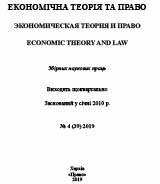
The need in order to effectively tackle corruption to emphasize the fight against rent-seeking is substantiated. There are three stages of the fight against rent-seeking: change of structures; providing structures with professional staff and creating an advanced anti-corruption system. A set of measures is proposed to reduce the opportunities for rentseeking and to complicate the concealment and use of corruption incomes.
More...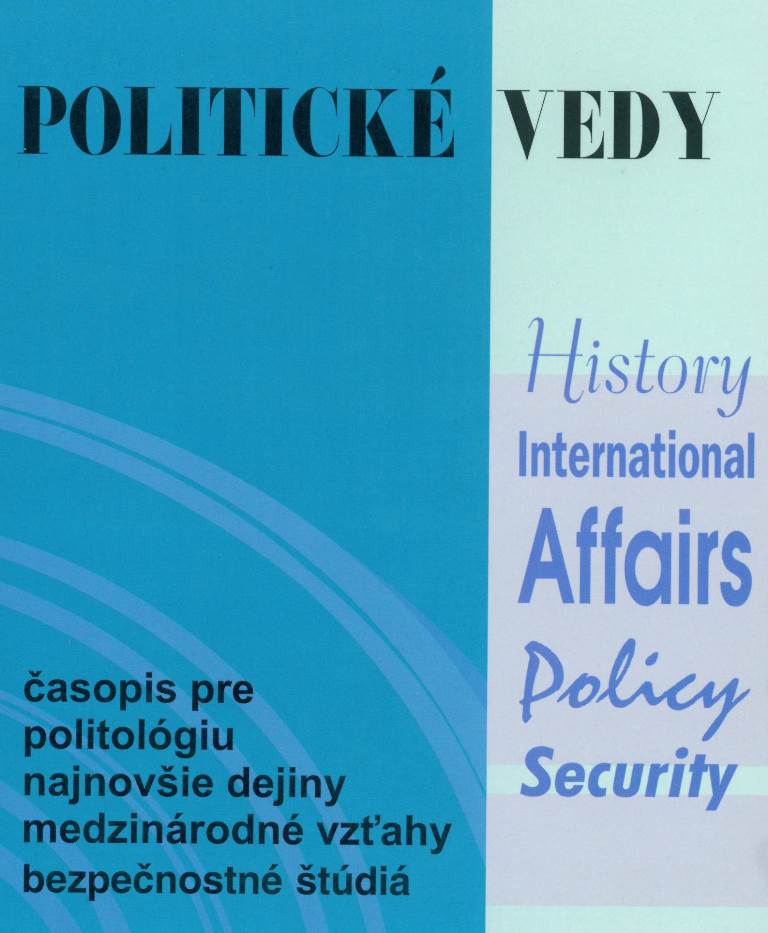
Corruption is currently one of the most serious problems. It is considered a negative social phenomenon of modern society with an unimaginable impact on the economy of the state. Corruption is present in many areas of human activity, has penetrated into various areas of social life and can have many forms and variations. It is not a problem just in Slovakia; many other countries have to cope with the same complications. This is one of the most important problems in all segments of the national economy. As expenditures in trade and in the third sector is rising due to corruption, investment and consequently the rate of economic growth in the country is slowing down. On the other hand, countries that can demonstrate a high level of transparency have better conditions for entrepreneurship and the lives of citizens using public services. It is therefore necessary to take precautionary measures against such persistent behavior by individuals and groups that have the power to influence public affairs and their actions affect the entire public sector. In our view, informing people about the level of corruption in the public sector is an effective tool. However, its detection and social repression are very difficult. The forms and methods in which corruption were manifested are so different that finding an effective and simple solution is not easy. However, without a list of suitable indicators, it is not possible to measure the economic impact of corruption on the national economy. The aim of the work was to find ways to quantify corruption in the Slovak public sector and partly also in the Czech Republic by examining available indicators. Based on our research, we were trying to propose a comprehensive list of indicators that monitor corruption in the public sector. In the context of the selected methodology, we first mentioned the general characteristics of public sector corruption and its causes. We went to the possibilities of measuring corruption in the public sector in Slovakia and the Czech Republic and considered the advantages and weaknesses of the various indicators from a methodological point of view. In the final part, we summarized the reached knowledge as a feedback and suggestion for further examination of the problem. In addition to the relevant domestic and foreign literature, we have worked with relevant legislation, with official data and statistics available on the internet in meeting the goal. From the scientific work methods, we have used a comparison of theoretical views on corruption in the public sector and its implications, the analysis of primary sources and synthesis. As long as there are no clear indicators for measuring corruption in the public sector, in our view, it is not possible to quantify its economic impact on the national economy. To measure corruption in the public sector through specific indicators, we consider it a challenge in the coming years of our work.
More...